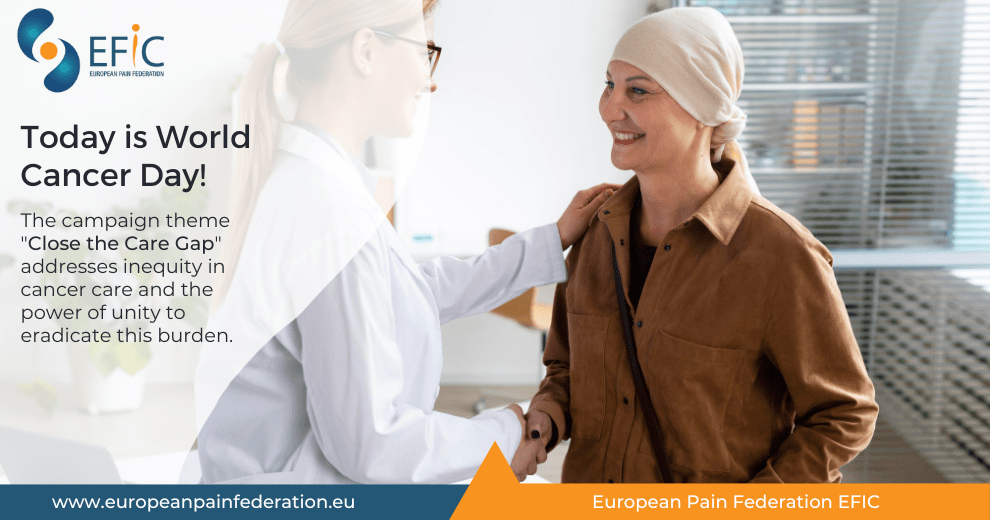World Cancer Day is an annual campaign by the Union for International Cancer Control. It was created on 4 February 2000 to help unite the cancer community to reduce the global cancer burden, and advocate for equal access to life-saving cancer diagnosis, treatment and care. The 2022-2024 campaign theme is ‘Close the Care Gap’. In 2024, the global community is called to unite voices and take action through stronger alliances and innovative new collaborations.
Pain is a common symptom among cancer survivors. Up to 40% of survivors experience pain, while at least 66% of individuals with advanced progressive cancer experience disabling pain. Research suggests that cancer pain is poorly controlled in a substantial number of individuals.
- Find out more about our Cancer Pain Policy
- Read the EFIC position paper Standards for the management of cancer‐related pain across Europe: A position paper from the EFIC Task Force on Cancer Pain
- Read the SIP position paper on cancer pain here
- Read up on the 10 standards published by the European Pain Federation to improve cancer pain management across Europe. These standards recommend:
- Routine pain assessment at healthcare encounters,
- A tailored multimodal pain management plan which is reviewed where necessary,
- Self-management advice and support,
- Specialist referral if pain is not improving or medicines are creating intolerable side effects,
- Ongoing education and training for healthcare professionals who treat cancer,
- Monitoring of service outcomes,
- And national guidelines for cancer-related pain.
Adoption of the 10 standards across Europe will promote the quality of care of patients with cancer‐related pain and reduce unnecessary suffering.
